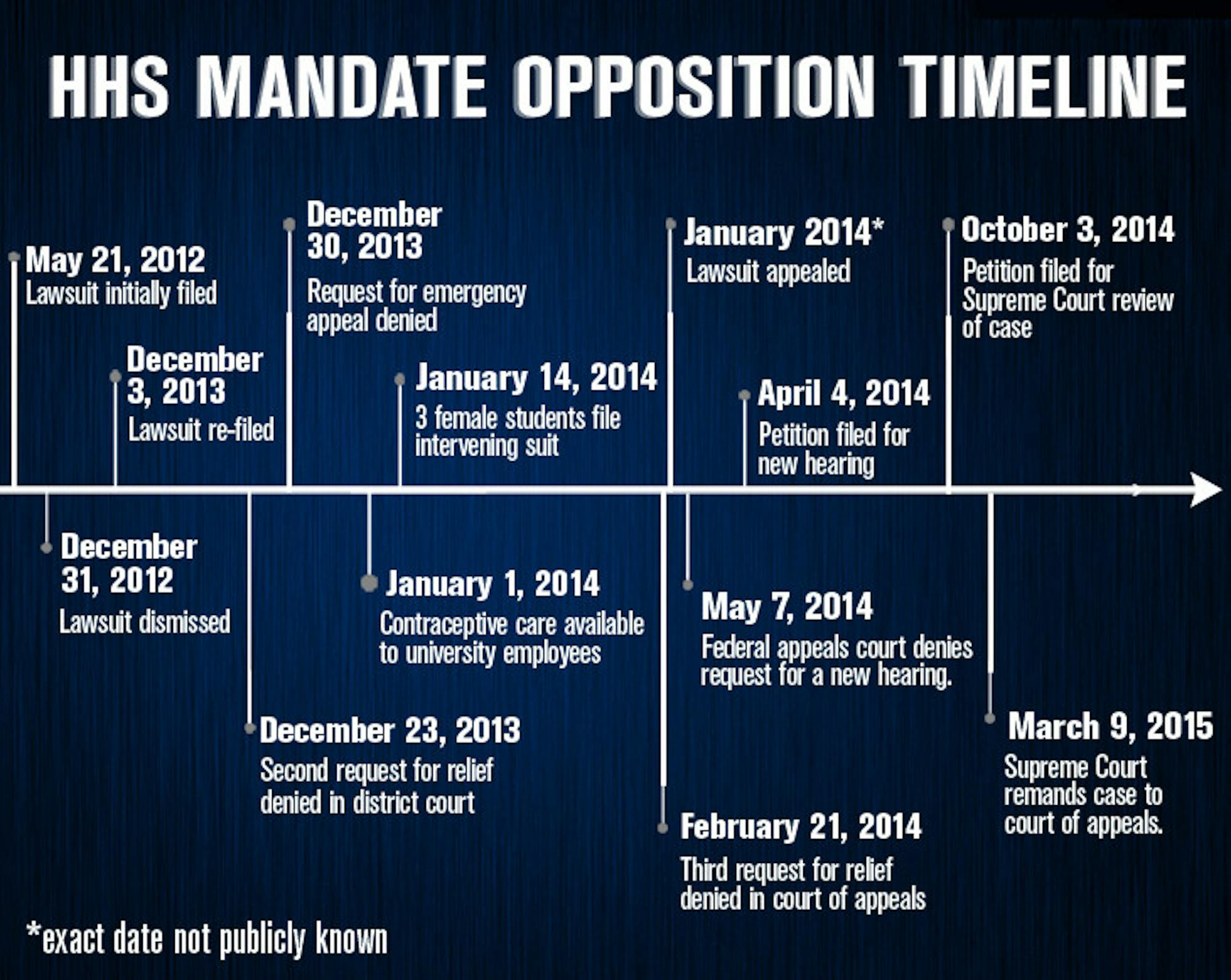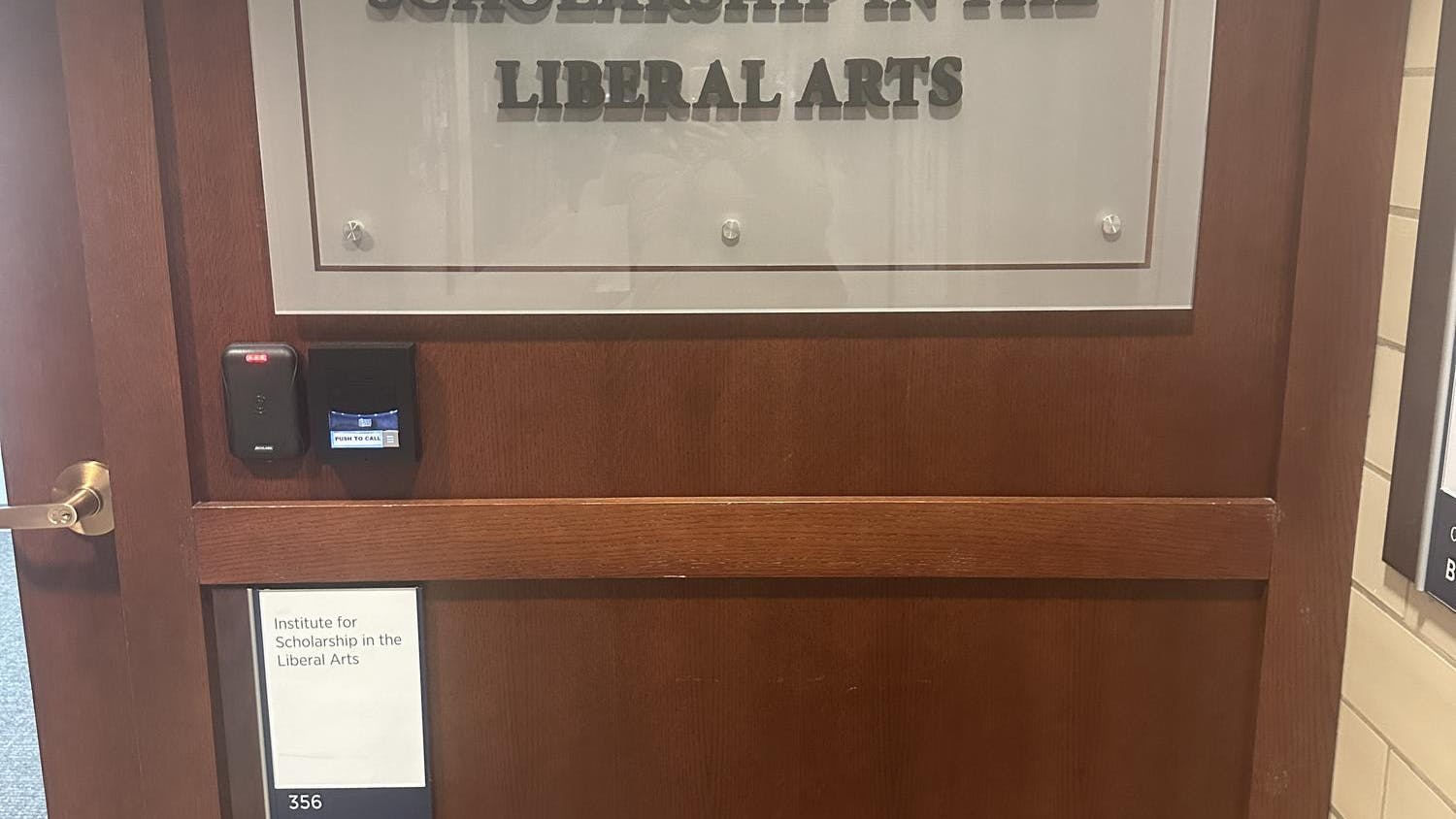
Keri O'Mara
Last Monday, the Supreme Court called the 7th Circuit Court of Appeals to revisit its earlier ruling on Notre Dame’s case against the Department of Health and Human Services (HHS). Notre Dame's court case, which the University initially filed in May 2012, asks for an exemption to the mandate in the Affordable Care Act that requires that employers provide their employees with access to birth control.
University spokesperson Paul Browne said the 7th Circuit Court previously denied Notre Dame's request for a temporary restraining order regarding the mandate, which Browne said violated the University's religious tenets by requiring participation “in a regulatory scheme to provide abortion-inducing products, contraceptives and sterilization.”
“Notre Dame continues to challenge the federal mandate as an infringement on our fundamental right to the free exercise of our Catholic faith,” Browne said.
Associate professor of law and political science Vincent Muñoz said the Supreme Court’s decision is promising, although there is still much to be decided on in court.
“The Supreme Court ruling certainly makes it more likely that Notre Dame will receive a more accommodating [decision] than has been previously offered, but how exactly HHS will adjust the law in light of Notre Dame's recognized legal protections is yet to be determined,” Muñoz said.
It is not uncommon for the Supreme Court to allow a lower court to reconsider its previous ruling on a case without approaching the case directly itself, political science professor Rick Garnett said.
“This [decision] does not necessarily mean that Notre Dame will prevail, but it is a good sign,” Garnett said. “At the very least, it is a welcome development that the lower court opinion, which contained inappropriate asides and unnecessary rhetoric, is vacated.”
Garnett said Notre Dame’s case against HHS bears resemblance to Hobby Lobby’s case in 2014, in which the Supreme Court ruled that Hobby Lobby was not required to provide contraception to its employees because of its religious objections. However, there are some differences between the two cases, he said.
“Notre Dame's case is different [from the Hobby Lobby case] in the sense that, first, the University is a non-profit with a clear religious character and, second, the precise actions being compelled by the government are different,” he said. “That said, the basic form of the arguments is the same. In each case, the claimant is saying that a particular government action imposes a substantial burden on religious exercise and that the burden is unnecessary and therefore unlawful.”
Those following the case should remember that Notre Dame is not arguing that the HHS mandate is unconstitutional, but that it violates a particular statute, the Religious Freedom Restoration Act (RFRA), Garnett said.
“It is probably not unconstitutional for the federal government to require employers like Notre Dame to provide the coverage in question," he said. “But, the Act provides increased protection for religious liberty and religious objectors and — in my view — the best arguments lead to the conclusion that the mandate violates the Act.”
Law professor Orlando Snead said the Supreme Court likely called on the 7th Circuit Court of Appeals to review its previous decision because the original decision was not in line with the RFRA.
“RFRA prohibits the federal government from restricting religious freedom unless it does so for the most compelling reason imaginable and by following the least restrictive means to accomplish this purpose,” Snead said. “Whatever one might think about the government's purposes in maximizing access to contraceptives and drugs or devices that the FDA labeling suggests might function by causing the death of a newly-conceived embryo, it is clear that there are less restrictive and coercive ways to accomplish this goal than to compel Notre Dame to facilitate such access by modifying the operation of its health plan.
“Accordingly, my judgment is that the HHS mandate fails the careful balancing test established by RFRA.”









